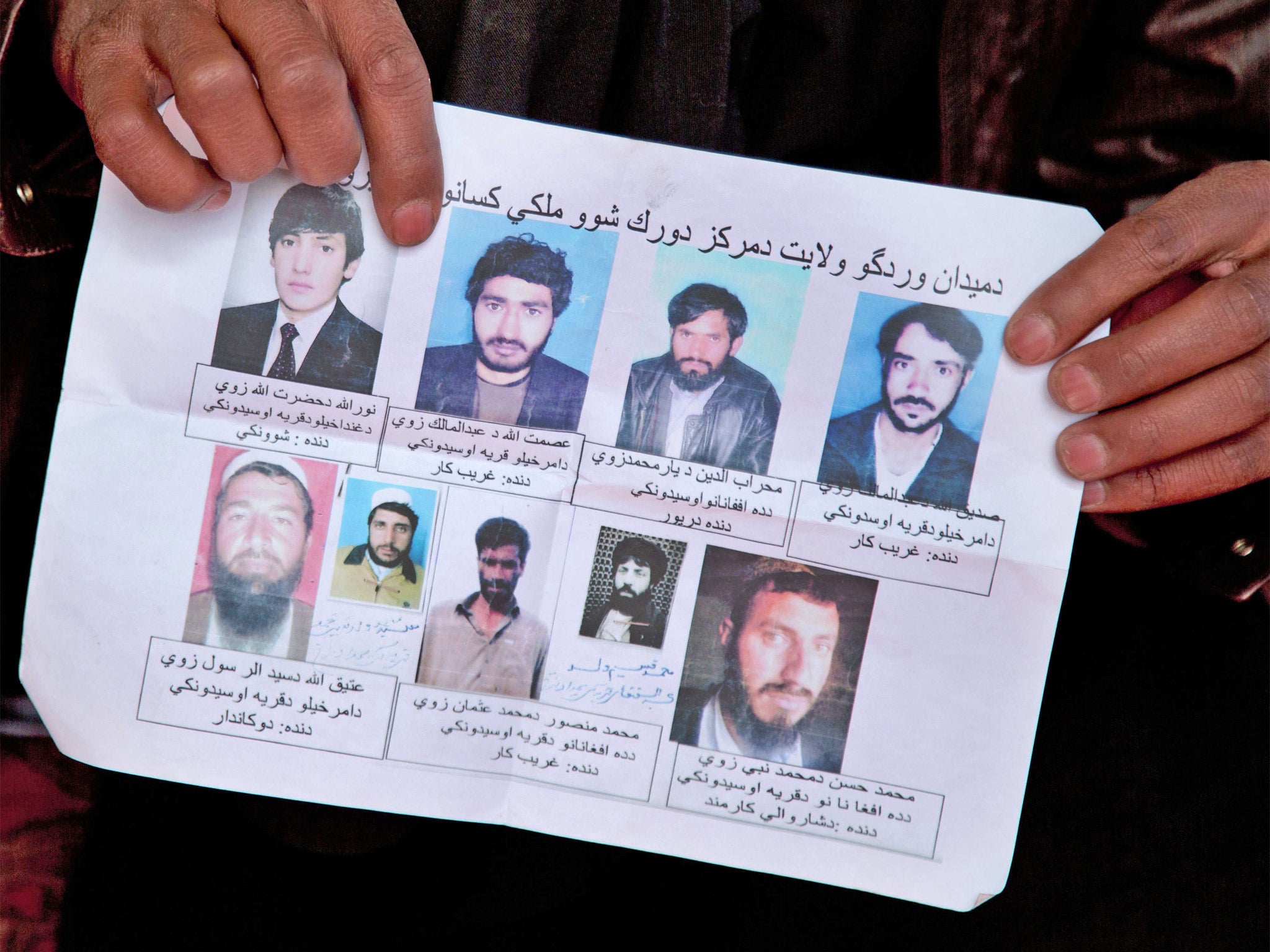Afghans arrest US interpreter accused of murdering civilians
Zakaria Kandahari ‘fled American base’ in January after his arrest was ordered

The Afghan authorities have arrested Zakaria Kandahari, a former interpreter for US special forces whose alleged role in the killings last year of nine or more civilians has contributed to the evermore fraught relationship between Washington and President Hamid Karzai.
The capture of Mr Kandahari had been rumoured for several weeks but was finally confirmed at the weekend by Afghan intelligence services, which said he had been detained “recently” in his home city of Kandahar in southern Afghanistan “for various crimes”. He was carrying several false IDs as well as three pistols, they added.
The nine men were among 17 who disappeared in 2012 in Wardak province south of Kabul, before their mutilated bodies were found in a field within walking distance of a US special operations base where Mr Kandahari had worked. Almost every other detail of the affair is a subject of controversy.
According to villagers, dozens of local men were arrested by US troops, who also beat and tortured some of them. The villagers claimed that Mr Kandahari worked for US special forces and played a leading role in proceedings, selecting who should be taken into custody and personally torturing and killing some victims.
But the US-led Nato forces in Afghanistan said they have found no evidence of wrongdoing by special forces in Wardak, while US officials have separately denied any American involvement in the killings, telling the Afghan authorities that Mr Kandahari had fled in January from a US base after Mr Karzai had publicly demanded his arrest. Afghan officials have claimed the Americans allowed him to escape. This, too, was denied by US spokesmen, who insisted Mr Kandahari by then was no longer working for them and did not have American citizenship.
“We have publicly acknowledged arresting nine people, five of whom were released relatively quickly, but I do not know if these nine were part of the group of bodies that have been found,” Colonel Thomas Collins, a spokesman for Nato’s International Security Assistance Force (Isaf), told the Associated Press news agency.
A month after Mr Kandahari’s vanishing act, the Afghan President ordered US special forces to leave Wardak, only for General Joseph Dunford, the top US commander in Afghanistan, to warn that withdrawal would endanger the security of the capital, Kabul, fewer than 30 miles away. In the end, the pullout was limited to a single district, Nerkh where the base was located.
A month later, villagers discovered the first two bodies in the field. By the start of June the remaining seven had been dug up, leading to violent protests as hundreds of Afghans, carrying three of the bodies, demanded the arrest of American soldiers. A relative of one of the victims, Khalilullah Ibrahimkhiel, told AP he had identified his nephew, Nawab, from the embroidery on the tunic he wore when he disappeared last year. The corpse was badly mutilated, with fingers and teeth missing. “It looked like they used acid or something on his face,” the uncle said.
An acrimonious relationship
The Kandahari affair is one of several incidents that have brought relations between Hamid Karzai and the Americans to a new low, prompting an exasperated Obama administration to seriously consider the total withdrawal of all US forces by the announced deadline of late 2014.
The original plan called for some American personnel to remain behind, as trainers or advisers, under the US security guarantee for Afghanistan sought by Mr Karzai. But that is now in serious doubt, as matters have gone from bad to worse, with the Afghan President blaming Western countries – which have lost thousands of lives in Aghanistan since 2001 – for the rise of Islamic extremism.
Then Mr Karzai enraged Washington by pulling the rug from under the latter’s attempts to launch peace talks with the Taliban in Qatar last month. The New York Times said a video conference reconcile the two sides ended in acrimony as Mr Karzai accused the US of seeking a separate deal with the Taliban in Pakistan.
Join our commenting forum
Join thought-provoking conversations, follow other Independent readers and see their replies
Comments
Bookmark popover
Removed from bookmarks